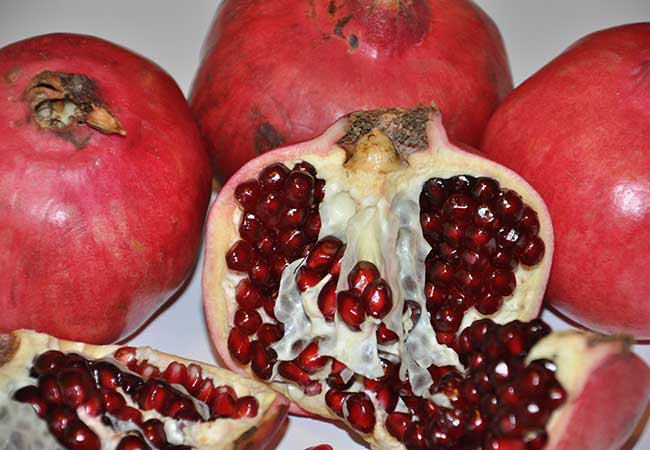As part of an interdisciplinary project of the LOEWE Centre Frankfurt Cancer Institute (FCI), researchers from the Georg-Speyer-Haus in Frankfurt am Main, Germany, and Goethe University Frankfurt have succeeded in identifying a new approach for the therapy of colorectal cancer. In preclinical models and studies on human immune cells, they found that urolithin A, a metabolite product from pomegranate, sustainably improves the function of immune cells in their fight against cancer. After treatment with urolithin A, tumour-fighting immune cells become T memory stem cells which, due to their ability to divide, constantly supply the immune system with rejuvenated, non-exhausted T cells.

Colorectal cancer remains a disease with high mortality rates in advanced stages. In recent years, numerous research findings have improved early diagnosis and therapy, although unfortunately not all patients respond adequately to novel therapeutic approaches. Current research suggests that one characteristic of tumour diseases is immune dysfunction: immune cells that are supposed to fight the tumour are systematically suppressed by the tissue surrounding the tumour, the tumour microenvironment. As a result, T cells, which are our body’s natural immune response against cancer, are restricted in their function, allowing the tumour to grow and spread uncontrollably.
The research team led by Professor Florian Greten, Institute for Tumour Biology and Experimental Therapy and Goethe University Frankfurt, has now come a significant step closer to a possible solution to the problem. The researchers showed that urolithin A induces a biological pathway that recycles and renews mitochondria, the “powerhouse” of the cell in T cells, through a process known as mitophagy. Aged and damaged mitochondria in the T cells are removed and replaced by new, functional ones. This changes the genetic programme of the T cells, which are thus more able to fight the tumour. The researchers demonstrated the therapeutic potential of urolithin A in two ways: on the one hand, urolithin A can be used as a food in the preclinical model, which limits tumour growth and even acts synergistically with existing immunotherapy. On the other hand, the benefits of urolithin A were also observed in human T cells. In vitro treatment with urolithin A “rejuvenates” human T cells, producing memory T memory stem cells in the laboratory.
Dominic Denk, MD, physician at Frankfurt University Hospital and first author of the study, explains: “Our findings are particularly exciting because the focus is not on the tumour cell but on the immune system, the natural defence against cancer. This is where reliable therapeutic approaches are still lacking in the reality of colorectal cancer patients. By possibly improving the combination therapy with existing immunotherapies, the study opens up meaningful possibilities for further application in the clinic. We hope to use this to sustainably improve the therapy of colorectal cancer, but also of other cancers.”
Building on these findings, the researchers plan to continue the successful collaboration: in future clinical trials, the application of urolithin A will be investigated in individuals with colorectal cancer.
Professor Greten, director of the Georg-Speyer-Haus and spokesperson of the Frankfurt Cancer Institute, emphasizes the necessary teamwork: “This work proves once again how successful the interdisciplinary concepts of the FCI are. We are very pleased that we can now quickly transfer our results to the clinic and look forward with great excitement to the upcoming clinical trials.”
Publication: Dominic Denk, Valentina Petrocelli, Claire Conche, Pénélope A. Andreux, Chris Rinsch, Florian R. Greten: Expansion of T memory stem cells with superior antitumor immunity by Urolithin A-induced mitophagy. Immunity (2022) https://doi.org/10.1016/j.immuni.2022.09.014








